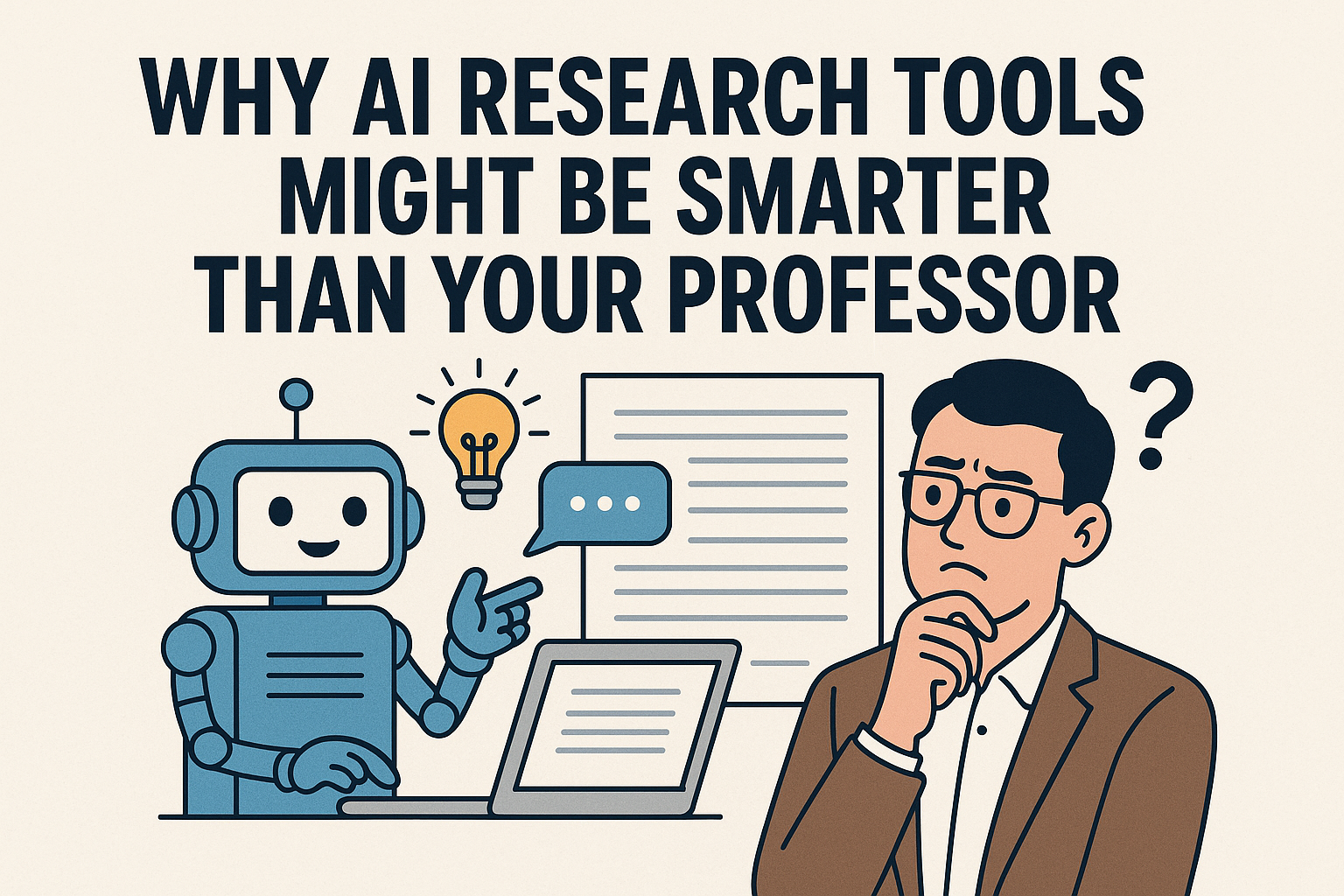
For decades, academic research has been defined by long nights in libraries, endless note-taking, and the slow grind of synthesizing sources. But today, AI research tools are flipping that model on its head—and not everyone is happy about it. Critics argue that relying on AI research assistants or an AI paper generator undermines academic integrity. Supporters say it levels the playing field, cutting months of work down to hours. So who’s right?
The Rise of AI in Academia
The academic world is no stranger to technology, but academic AI takes things further. Instead of simply storing references, today’s tools can:
-
Generate first drafts with an AI paper generator.
-
Conduct automated summaries for a literature review AI.
-
Act as a lit review AI companion, surfacing insights you might miss.
-
Serve as a full AI research assistant, managing citations, formatting, and even spotting gaps in your methodology.
Why Students (and Professionals) Are Embracing It
The best AI for research isn’t just about cutting corners—it’s about amplifying human capability. Imagine handing repetitive tasks like citation formatting, paraphrasing, or keyword scanning to an assistant that never sleeps. That leaves more time for critical thinking, interpretation, and original argumentation.
The Controversy: Shortcut or Superpower?
Here’s the uncomfortable truth: many academics still see these tools as “cheating.” They worry that AI makes students lazy. But the same argument was once made about calculators, spell-checkers, and even the internet itself. In reality, literature review AI isn’t replacing scholarship—it’s accelerating it.
Choosing the Right Tool
Not all platforms are equal. The best AI for research depends on what you need:
-
Drafting help → AI paper generator.
-
Synthesizing large volumes of studies → lit review AI.
-
End-to-end workflow support → AI research assistant.
The future of academia isn’t about banning these tools—it’s about teaching researchers how to use them responsibly. Those who resist may risk falling behind, while those who embrace AI research tools will move faster, publish more, and unlock insights their peers can’t.